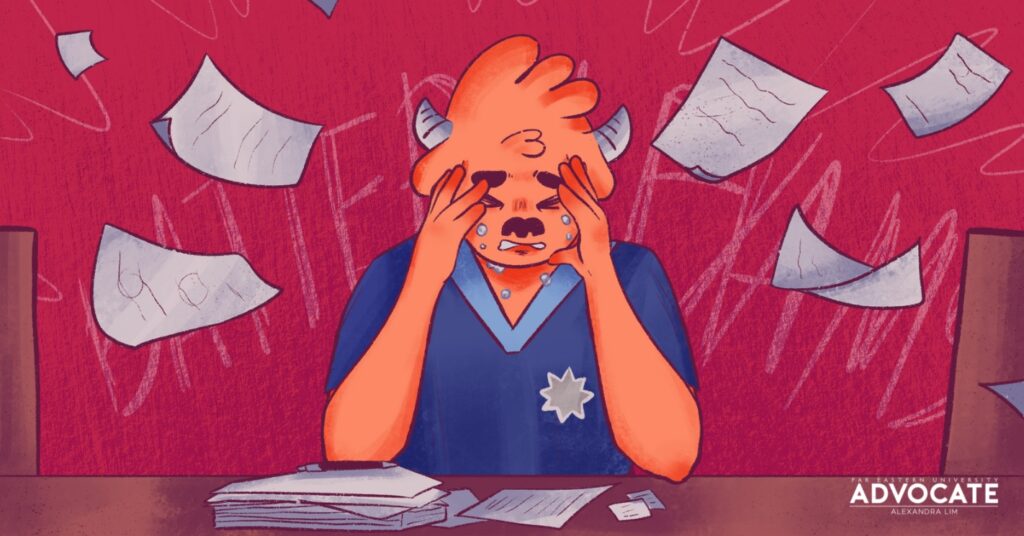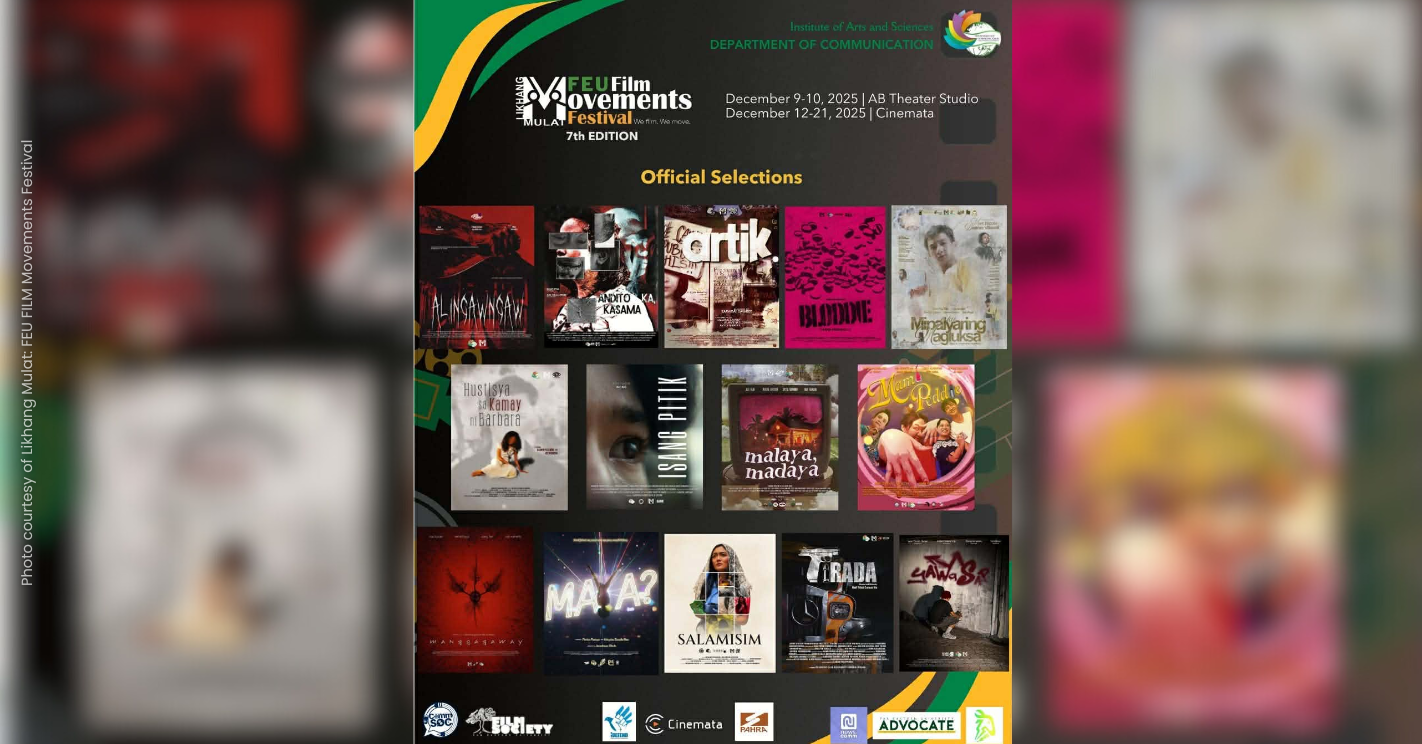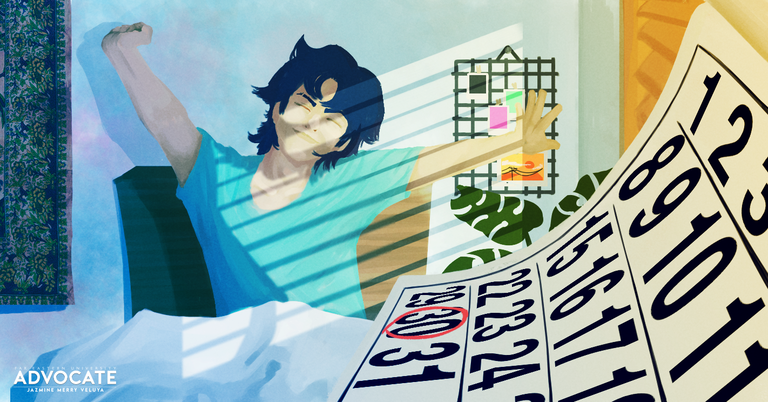
3 Tamaraws top May 2025 PNLE
- May 18, 2025 18:29
FEU Advocate
June 24, 2025 15:10

Epimoní
By Mariah Louise Miciano, Junior Features Writer
After two years of persevering to pass, the time has come for us, Medical Technology (MedTech) students, to take a qualifying exam that would either lead us to promotion or redirection. With every wrong shade of a letter, our chances of stepping into the next stage of our MedTech journey shrinks. Which begs the idea that our dreams rely on a 300-item exam and an at least 2.0 Quality Point Average (QPA).
As part of its curriculum, Far Eastern University's (FEU) MedTech program requires an examination called the Medical Technology Qualifying Exam (MTQE), also known as the Battery Exam, to be promoted to third year.
The exam is composed of 15 major courses that MedTech students have taken during our first and second years.
It primarily aims to assess our retained skills and knowledge about these subjects because they’re all pre-requisites of our third-year professional courses.
It's one of the most dreadful and crucial parts of the MedTech journey at FEU since it would either secure our slot to junior year or have us resort to shifting programs or even transferring schools.
While we are given time to study with a table of specifications to help us focus on which topics will appear, it's difficult to study 14 courses in the span of a few weeks, especially now where the passing score was raised from 65 to 70 percent this school year.
This 70-percent score comprises 50 percent from our QPA and 50 percent from our actual exam’s score.
The questions, “Can I study everything on time? Will I remember every lesson? Is this worth it? Are my efforts enough? Is this really for me?” somehow dominates our mind every night.
Reaching this far was not easy either. To be qualified, we had to work for the highest QPA we could achieve just to be at an advantage—something that we invested the last two years for—with not a single backlog of all our major courses, including the mandatory general education courses.
As the examination day fast approaches, the lingering thoughts of self-doubt keep piling up—second-guessing every step we make.
“Is this really worth the risk? Or should I take another path to run from it?” Both decisions require a lot of courage and determination.
It is like one day, you’re in a café, studying with your MedTech friends for a 20-item quiz, then the next, you’re on your own.
However, there's a bigger picture of why we're all having a hard time. A huge factor of this is the ineffectiveness of our learning experiences.
Since we’re dealing with multiple quizzes every day per week, there's little to no time to rest and breathe. There's this tendency that instead of learning something, every information we have to remember is only memorized but not learned.
Suspensions and unannounced delays do not help either, as they only result in collating every assessment and scheduling the deadlines within the same days.
The professors’ absences and lack of faculty have also been a constant issue, undermining the educational standards the students are paying for.
In times like this, professors resort to sending recorded lectures or online modules instead, compromising the quality of the discussions, especially in professional courses where practical applications are necessary.
No matter how hard we try to focus and be optimistic, the weight of our grades have their way of getting into our heads and overwhelming us—making it harder to keep our faith and retain every lesson.
Although this exam opens a new path for those who will meet the cut-off score, the MTQE fosters an environment where the gates gradually close for students who are—in the University’s standards—not capable enough.
The fear of having to start over again and put all our efforts behind, in hopes of still being able to pursue our dreams, spreads throughout our body like a disease.
So, if they get to measure our capabilities through their qualifications, it’s only fair to assess if they are really giving the quality of education we all deserve.
We have reached this far because of our resilience and hard work, but we should also call out the ones responsible and speak up for the right treatment we are entitled to.
Nonetheless, whichever path we take, it's important to remind ourselves that we would not get this far if we didn't deserve this. We wouldn't be here if it weren't because of our passion to pursue our heart's desire.
At this moment, it is hard to convince ourselves that everything is worth it. But one day, when we look back on this, we will thank ourselves for reaching so far.
Contrary to how it would determine our paths in the program, let us not let our scores and grades get to us. Despite all the hardships during this period, I hope we could take our time to clear our minds and shade all our worries away. No number or letter should define one’s dreams and efforts—our journey and dream to save lives will not end with a passing or failing mark.
(Illustration by Alexandra Lim/FEU Advocate)









